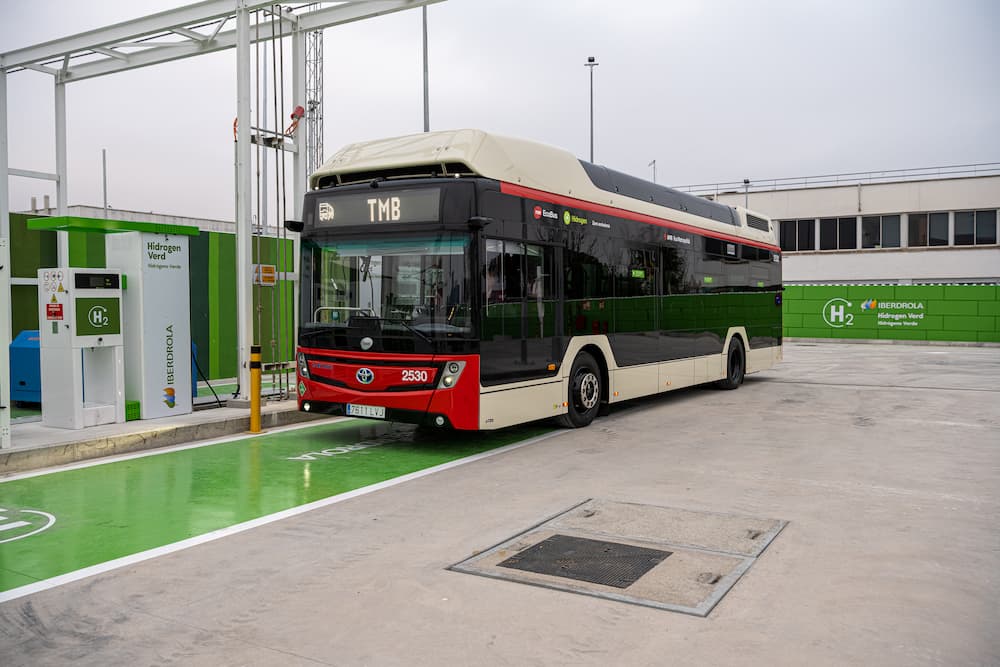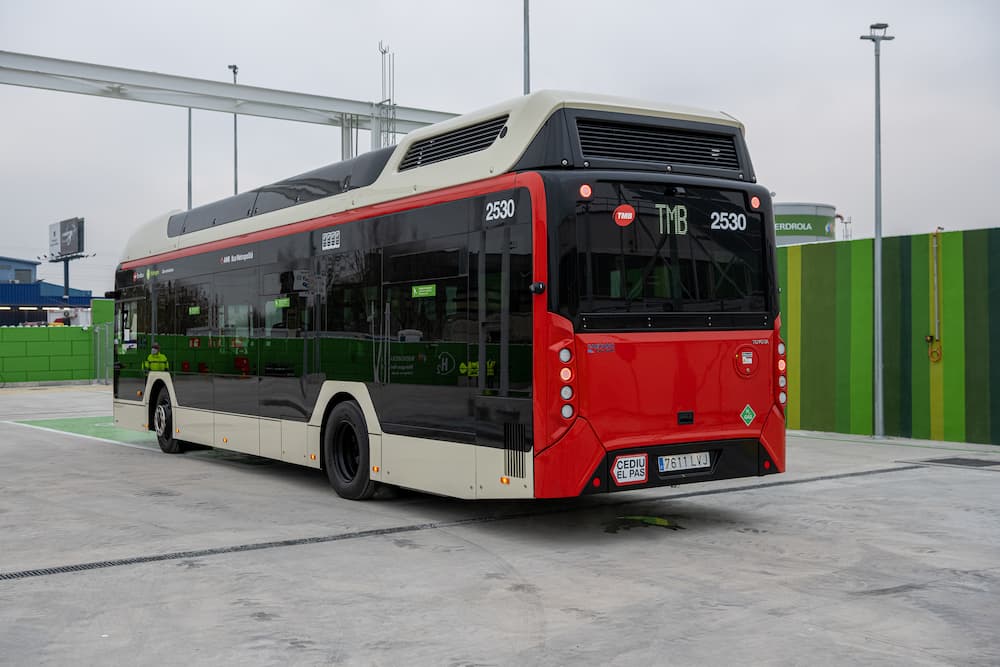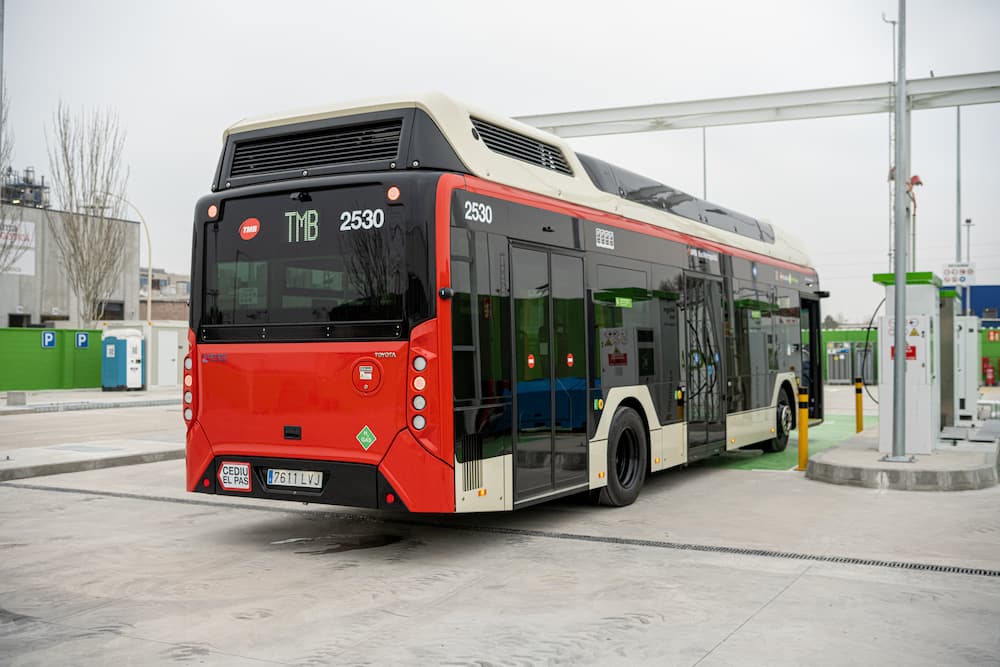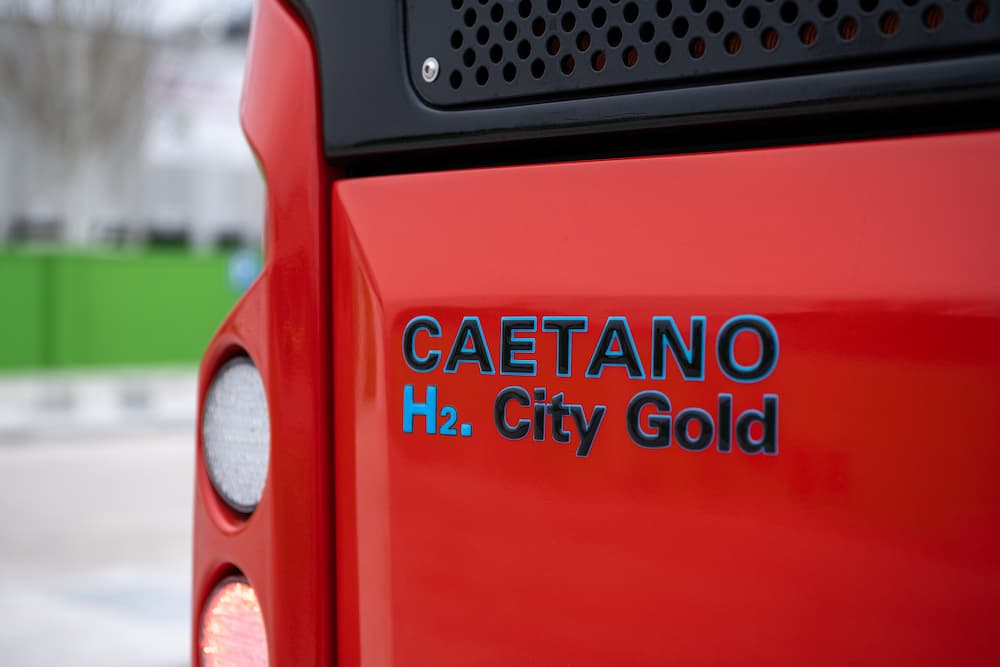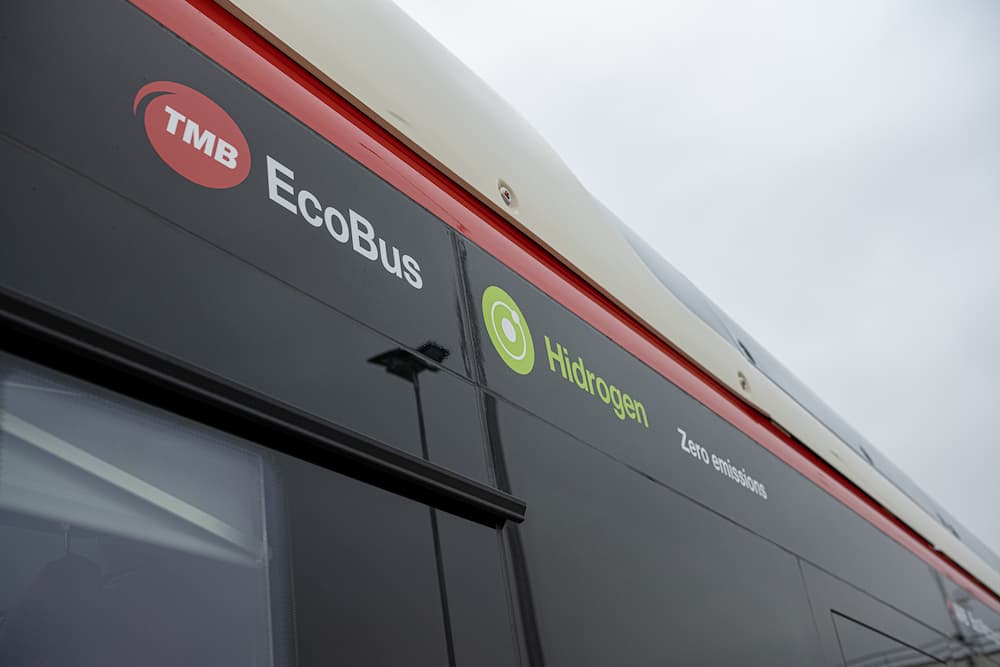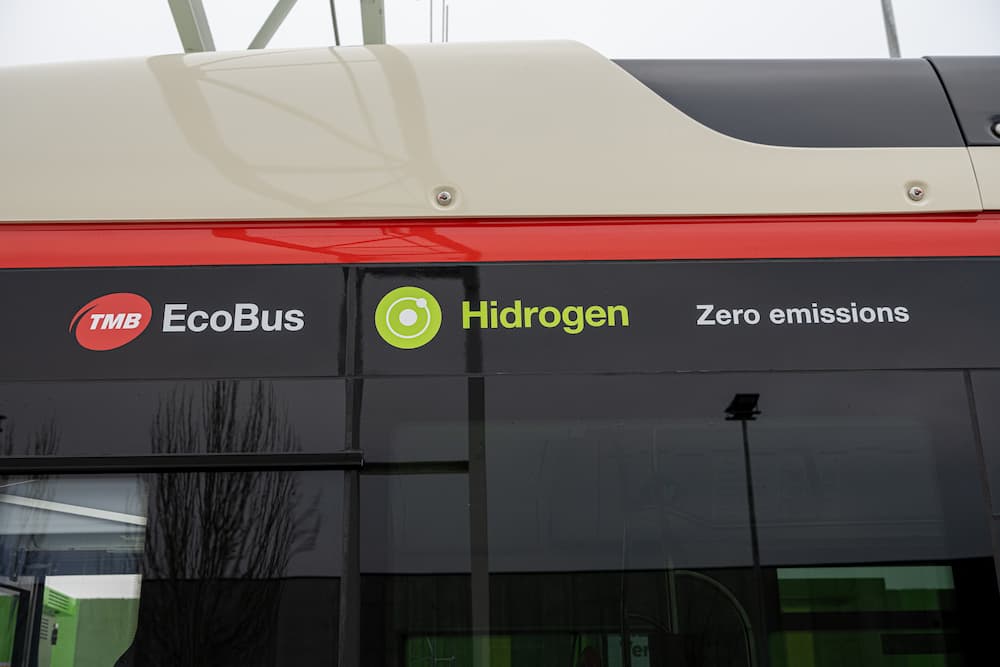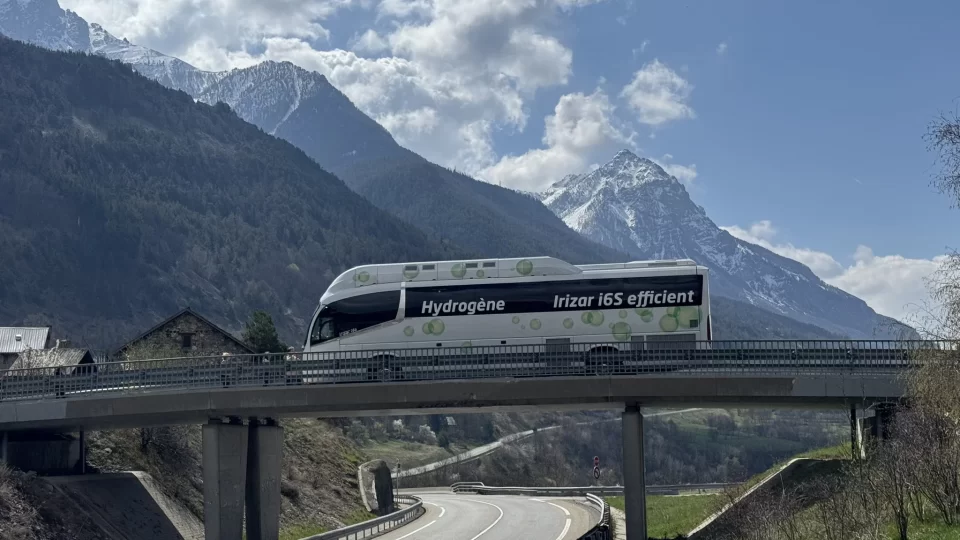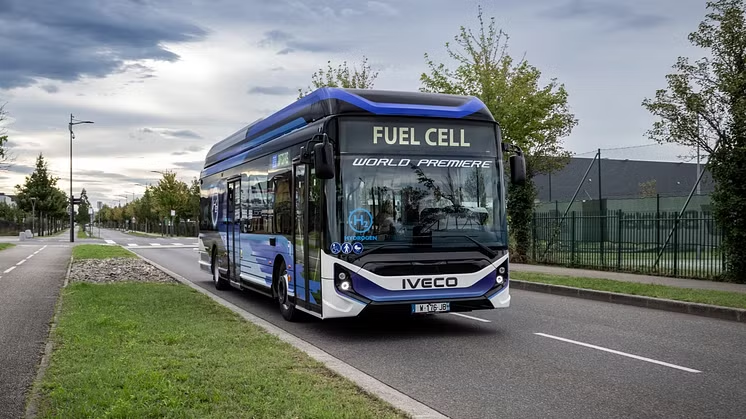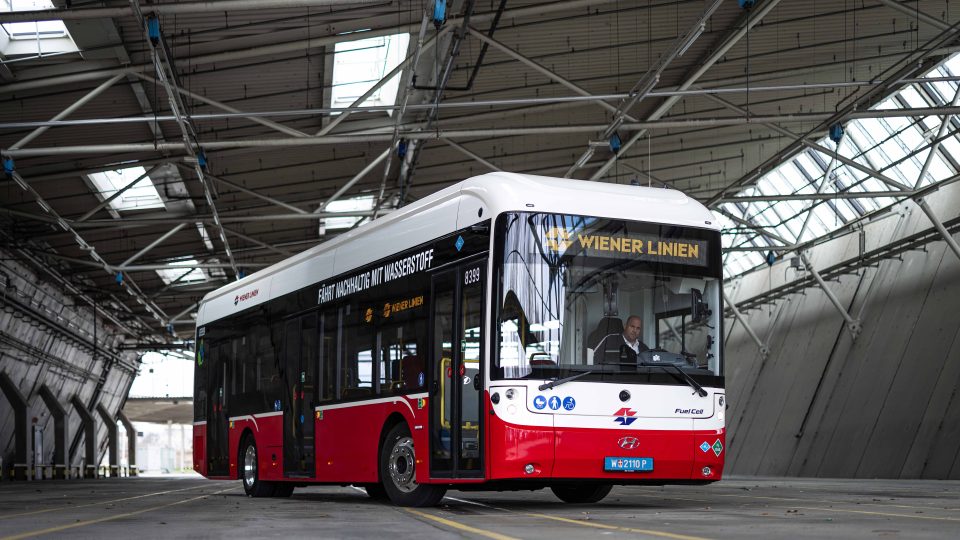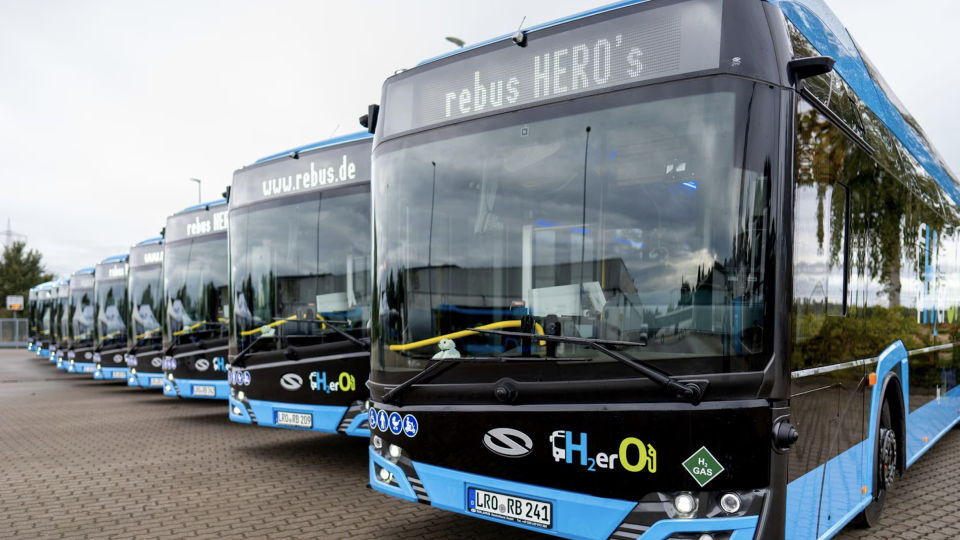Barcelona receives first Caetano hydrogen bus
The first of eight state-of-the-art hydrogen fuel cell buses built by CaetanoBus arrived at a Transports Metropolitans de Barcelona (TMB) depot this week. At the same time, Iberdrola has already started producing green hydrogen in its Zona Franca plant, where these urban buses will soon be supplied, kicking off the project to apply this innovative […]
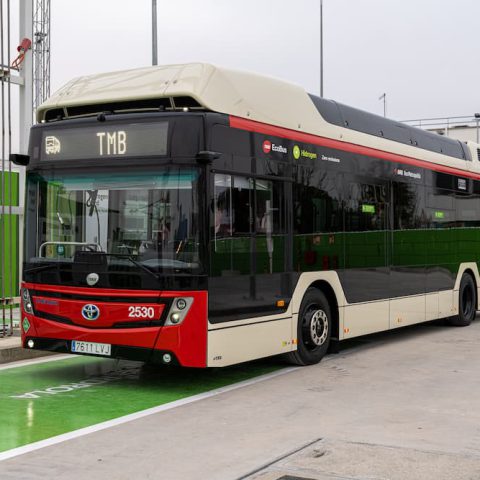
The first of eight state-of-the-art hydrogen fuel cell buses built by CaetanoBus arrived at a Transports Metropolitans de Barcelona (TMB) depot this week. At the same time, Iberdrola has already started producing green hydrogen in its Zona Franca plant, where these urban buses will soon be supplied, kicking off the project to apply this innovative technology to decarbonize public transport and move towards a new mobility with zero polluting emissions.
This is the first time this type of renewable energy carrier has been generated in Spain for commercial use, making both companies pioneers in the decarbonization of heavy urban mobility.
Caetano’s recently delivered vehicle, the H2 City Gold LHD model, will follow the usual process for TMB fleet additions before beginning a period of passenger-free testing. It will then enter commercial service on a regular route in 2022.
As planned, this groundbreaking, which emits only water vapor, will be fueled with green hydrogen (about 20 kilograms per day) at the refueling facility located in the Zona Franca industrial area, near the depot where it will be based, promoted by TMB and owned by Iberdrola, which has a grant from the Connecting Europe Facilities for Transport program of the European Climate, Infrastructure and Environment Executive Agency
The new zero-emission hydrogen bus produced by CaetanoBus for TMB is a standard, 12-meter-long bus with a lightweight aluminum body and three doors. The hydrogen system incorporates Toyota’s fuel cell, rated at 60 kW and five Type 4 hydrogen tanks with a total capacity of 37.5 kg of H2 storage. The Siemens traction motor provides a maximum output of 180 kW, and the ELFA 2 voltage inverter, also from Siemens, manages all of the motor’s power. The hydrogen system is complemented by LTO lithium-ion technology traction batteries with a total capacity of 44 kWh, where energy generated by the fuel cell and energy generated by the regenerative braking system is stored.
Laia Bonet, president of TMB, defined the upcoming start of the hydrogen bus project as “a milestone for our company, for Barcelona and for the metropolitan area, becoming a reference in terms of innovative solutions for sustainable mobility. This is exactly what we are looking for with our TMB 2025 strategic plan, which is why we will be increasing the number of hydrogen buses and in general our commitment to green energy in the years to come”.
For Millán García-Tola, Iberdrola’s global hydrogen director, the start-up of this plant means that the commercialisation of green hydrogen in Spain is now a reality thanks to the first production of this energy carrier in an Iberdrola project: “Thanks to the collaboration of pioneering and forward-thinking companies, we have before us today a tangible and scalable example of a clean solution for heavy mobility. Green hydrogen is the perfect complement to electrification for the global decarbonisation of the economy”.
Patrícia Vasconcelos, CEO of CaetanoBus, says that being part of this project is an honour for the company: “Having a Caetano bus included in TMB’s strategic plan is a source of pride for us that we can, in this way, be present in a city like Barcelona and support decarbonisation goals by investing in zero-emission buses”.

